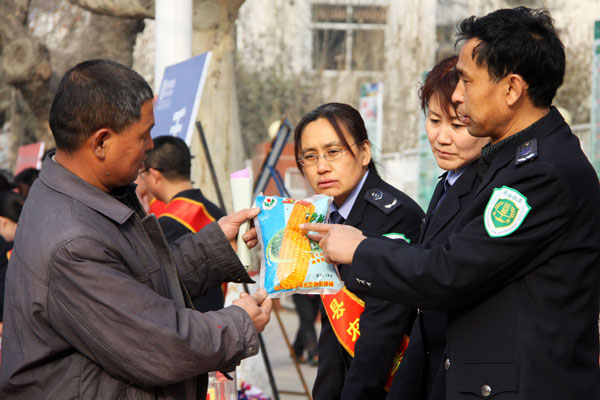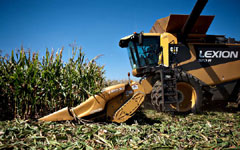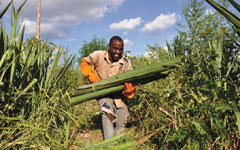 |
|
Law enforcement staff from Wanrong county, Shanxi province, tell a farmer how to distinguish fake corn seed. Nearly 70 percent of corn seed sold in China is counterfeit, according to Li Shihua, general manager of Bayan Jianong Agriculture Co Ltd. Provided for China Daily |
Pioneer, a unit of US chemicals maker EI du Pont de Nemours and Co, is building up its dealer network and research facilities in Northeast China. The world's largest hybrid-corn-seed producer by market share wants to tackle the market in counterfeit seeds in the nation's largest corn-grain-planting region.
Almost half China's farmland is in the north, particularly the northeast, where land doesn't always depend on heavy irrigation. The region can increase corn, rice and soybean output.
The amount of counterfeit seeds in northeastern provinces such as Heilongjiang and Jilin has increased over recent years as China's grain-production base moved gradually from the south to the northeast.
 |
|
 |
"I have never seen so many fake seeds before," Li said.
Li began to sell DuPont Pioneer's corn seed in 2007.
"What has affected our sales is the large volume of counterfeit seeds illegally produced by other companies copying Pioneer's hybrids," Li said. They have low germination and come with no after-sales service, Li said.
The seeds are cheaper and their sale has caused turmoil in the market, Li said.
Pioneer President Paul Schickler said counterfeit seed is an issue for Pioneer, other seed companies and farmers who have a right to receive quality and authenticity.
The flood of fake seeds is not a local problem. An estimated 8,400 seed companies operate in China but fewer than 100 own their intellectual property rights.
More than 90 percent of the companies are small or medium-sized and have lower levels of research and technology than other competitors. Around 32 percent sell counterfeit seeds every year, according to a report by the research center for rural economy at the Ministry of Agriculture last November.
"While progress has been made, we believe the anti-counterfeiting work can be further enhanced in certain areas, so that all seed companies are confident," Schickler said.
